Leaders the Church can’t have
International Women’s Day
There is one tragedy that an increasing number of Catholics agree on – the Church’s failure to make full use of the enormous wealth of experience and the talents, expertise and special perspective of more than half its members
To mark International Women’s Day on Tuesday The Tablet has compiled a list of 50 remarkable women. They are just a tiny fraction of the women who could, in a Church that drew fairly and equally on the gifts of all the faithful, be sharing in its leadership. These are the women who could be running parishes and managing dioceses. They could be leading Vatican departments (a handful of senior officials in the Roman Curia are women, but fewer than one in 10 of the total). They could be serving on episcopal conferences. They could be presiding at worship – though the Church’s failure to make intelligent use of the gifts and talents of women is a concern that goes deeper and further than the issue of their ordination to the diaconate or to the priesthood. Women could – and should – be redesigning the landscape in a Church that, in 2022, is in urgent need of fundamental change.
Of course, women are already in important leadership positions in the Church itself and in Catholic schools, hospitals and charities – and the number of them is growing. The women who are dotted around the leadership structures of the Church certainly have authority and influence. Women such as Nathalie Becquart – an undersecretary at the Synod of Bishops office, who will be the first woman with a right to vote during the summit of bishops next year – are making a real difference. But the Catholic Church is led by men. And the men who lead the Church are elected by men in a recruitment process dominated by men.
These 50 lost leaders include academics and writers; spiritual guides and campaigners; thinkers, teachers and entrepreneurs. Some work inside a Catholic Church that they know could be better, if they and others were given more space as leaders. Some no longer live within the Church’s visible boundaries but have been heavily influenced by Catholicism. It has shaped their values and beliefs, and if the option had been there for them to put their talents to the service of the Church, we are sure at least some of them would have taken it.
Now don’t get us wrong: all the women on this list are living their
best lives, and there’s no “second best” for them about how the cards
have fallen. Given the pitfall of clericalism into which they might have
been sucked, they may well have flourished precisely because they’ve
forged their own paths outside the Church’s channels. So, these women
are winners. But – and here is the tragedy we want to highlight on
International Women’s Day – it’s the Church that has lost out. Even more
than having failed to properly embrace women’s gifts, it has failed to
open itself up to being changed by their presence.
And change is
critical. In 2022, it has not been difficult for us to find 50 women who
might, in other circumstances, have been open to being leaders inside
the Church; we could easily have found 100, 500, even 5,000. We’re
looking forward to your letters telling us who else we should have
included. But will it be as easy in 10 years’ time? Twenty? Younger
women are peeling away from the Church; they can see the glass ceiling,
and they know it’s barely being addressed.
So the time for action,
most definitely, is now. The alternative is that the tragedy of women’s
lost gifts will deepen. The entire Church will be more than
impoverished; its very future will be threatened if it continues to fail
to recognise what it is losing.
Chimamanda Ngozi Adichie
A writer and novelist,
born in Nigeria in 1977, Adichie’s books include Purple Hibiscus (2003),
Half of a Yellow Sun (2006) and We Should All Be Feminists (2014). She
studied medicine at the University of Nigeria, editing a magazine run by
Catholic medical students, before transferring to the US to study
communications, politics and creative writing. Adichie has spoken out
against sexism in institutional religion, including Catholicism, but has
said that she continues to identify as
a Catholic.
Helen Alford
Alford, 57, graduated in
manufacturing engineering from Cambridge, where she was also awarded a
PhD, and is the author of several books on management theory and
corporate social responsibility. She is a Dominican sister, and is the
dean of the faculty of social sciences and former vice rector of the
Angelicum, the Pontifical University of St Thomas Aquinas in Rome.
Chiara Amirante
Born
in Rome in 1966, author of several bestsellers, in 1994 Amirante opened
the first of what is now a series of New Horizons residential shelter
communities in a poor Rome neighbourhood. They offer a home to the many
“overlooked” people: sex workers, drug addicts, alcoholics, and
ex-prisoners.
Tina Beattie
Beattie grew up
in Lusaka and has spent much of her life in Africa. She started
university when the youngest of her four children started school, and
“somehow, went from being a rather conservative Presbyterian typist with
very little education to being feminist professor of Catholic Studies
at the University of Roehampton”. A ban on speaking in church venues has
failed to dent her determination to change the way the Church is run.
Myra Brown
A
racial justice campaigner for many years, Brown is pastor of the
Spiritus Christi Church in New York, an inclusive, independent off-shoot
of the Catholic Church in which she grew up. She has said she fell in
love with Catholicism, and felt a call to ministry, but knew it could
not be fulfilled if she stayed within the institutional Church.
Simone Campbell
A
lawyer, a member of the Sisters of Social Service, and a leading US
campaigner for social justice, Campbell was one of the main instigators
of the Nuns on the Bus project, in which she and fellow Religious toured
the country to highlight social issues. Investigated by the CDF under
Pope Benedict, she has described the Church’s failure to address sexual
abuse by priests as “outrageous”.
Noella de Souza
A
campaigner against sexual violence towards women and girls and the
exploitation of women Religious, de Souza has helped get justice for
victims of sexual abuse at the hands of priests in Mumbai. A
psychotherapist and counsellor, and a religious sister of the
Missionaries of Christ Jesus, she has said: “We don’t have a say in the
decision-making of the Church. We are aiming at gender equality as equal
disciples, and inclusion at the decision-making table.”
Ingrid Betancourt
Betancourt, 60, hopes to become
president of Colombia at the national elections in May. Last time she
stood, in 2002, she ended up being kidnapped, and spent the next six
years as a prisoner of the Revolutionary Armed Forces of Colombia – she
was held in a camp in the jungle, often tied to a tree. Celebrated for
her determination to combat corruption, she wants “to claim the rights
of 51 million Colombians who are not finding justice because we live in a
system designed to reward the criminals”. She has spent much of the
time since her release in 2008 – she was freed by security forces posing
as humanitarian workers - at Oxford University, where she studied for a
doctorate in theology.
Celia Deane-Drummond
Director
of the Laudato Si’ Research Institute in Oxford, Deane-Drummond
graduated in Natural Sciences from Cambridge University and obtained a
doctorate in plant physiology at Reading University before switching to
theology. Her work today embraces the meeting-point of faith and
ecology. She is co-editor of the journal Philosophy, Theology and the
Sciences.
Marianne Duddy-Burke
The executive
director of DignityUSA, Duddy-Burke works for the full inclusion of
LGBTQI people in both Church and society. She has called it “tragic”
that the Catholic Church at its highest levels cannot recognise the
grace in faithful same-sex couples, or offer them any sort of blessing.
Teresa Forcades
With
degrees in medicine and theology, Forcades is one of Spain’s leading
intellectuals. A Benedictine nun, she took a leave of absence from her
mountain monastery of Sant Benet de Montserrat to campaign for
Catalonian independence. She is known for her mistrust of pharmaceutical
companies and was a high-profile opponent of Covid vaccine mandates.
She has been a critic of the Catholic Church for its misogyny and
patriarchy.
Ephigenia Gachiri
An educator and
activist working to eradicate female genital mutilation, Loreto nun
Gachiri has devoted her life to the welfare of young women in Kenya. The
author of four books on FGM, she has a doctorate from Kenyatta
University, Nairobi, and an MBA from the University of Birmingham.
Joan Chittister
A Benedictine Sister of Erie and
the author of more than 50 books, Chittister has spoken out tirelessly
for peace, human rights, justice – especially for women – and church
renewal for more than half-a-century. She currently serves as co-chair
of the Global Peace Initiative of Women. In one much-read blog, she
wrote about how many women told her that they had left the Catholic
Church out of a sense of disillusionment and abandonment by an
organisation they once believed promised them fullnesss of life – “and
then let them know it is their very persons that deny them that”. So,
having felt unwelcome and uncared-for, the women leave Catholicism, and
“they go away
to where Jesus waits for them, arms open, in someone else’s Christian church”.
 Mary John Mananzan
Mary John Mananzan
An
activist, educator, author and theologian, Mananzan helped develop an
Asian feminist liberation theology. “In the Philippines, we were
political activists before we became feminists,” she has explained. “We
were talking about comprehensive social transformation of the
Philippines. And then we realised, how can you have a comprehensive
transformation of society when one half of the people are oppressed by
the other half?” Mananzan – a Benedictine sister – has a doctorate from
the Gregorian University in Rome and she has supported women’s access to
contraception, saying bishops’ fears that this would lead to increased
abortions were an overreaction.
Ivone Gebara
Born
in São Paulo, Brazil, in 1944, Gebara, an Augustinian religious sister,
has two doctorates – one in philosophy, the other in religious studies –
and worked alongside Archbishop Hélder Câmara for many years, honing
the principles and practice of liberation theology. A leader in the
eco-feminist movement in Latin America, she lives and works in a poor
neighbourhood of Recife. In the 1990s, she was silenced by the Vatican
for two years following remarks she had made about the legal regulation
of abortion.
Jeannine Gramick
An advocate for
LGBT and transgender rights, Gramick co-founded the Maryland-based New
Ways Ministry, which attempts to broaden the way Catholics traditionally
dealt with LGBT issues. Prohibited by the CDF in 1999 from working with
LGBT people – an order she ignored – last year Pope Francis described
her as a “valiant woman”. She has served on the boards of many
organisations, including the US National Assembly of Women Religious and
the National Coalition of American Nuns.
Mary Haddad
Haddad has served since 2019 as
president of the Catholic Health Association of the US, the country’s
largest non-profit healthcare provider, with an annual budget of $30
million (£22m). Haddad, a Sister of Mercy, has described healthcare in
America as being at a crossroads. Acute care – where funds have long
been focused – is being reappraised, and the emphasis is moving to
lifestyle and preventative medicine. Under Haddad’s leadership, Catholic
health services have begun to team up with social-service providers.
Nontando Hadebe
A
lecturer at St Augustine University in Johannesburg, South Africa,
Hadebe is a member of the Circle of Concerned African Women Theologians,
and international co-ordinator of Side by Side, a movement for gender
justice in the Church. She co-edited an anthology of stories from South
African women during the Covid pandemic.
Hille Haker
Born
in 1962, Haker is a German theologian who holds the Richard McCormick
SJ Endowed Chair of Catholic Moral Theology at Loyola University
Chicago. Her work focuses on ethics, moral identity and feminism, with a
focus on issues around sex trafficking.
Margaret Hebblethwaite
Writer,
scripture scholar and journalist, Hebblethwaite has worked in prison
chaplaincy, catechesis and parish work. She was assistant editor of The
Tablet from 1991 to 2000, when she gave up her job and left her home in
Oxford to live in Santa María de Fe, Paraguay. She founded the Santa
Maria Education Fund to fund tertiary education for the rural poor.
Martha Heizer
Head
of the Catholic reform movement We Are Church in Austria, Heizer and
her husband were excommunicated in 2014 for holding what the local
bishop called “private celebrations of the Eucharist without a priest”.
She vowed to work on for change, and has said laypeople share equally
with ordained men the right to shape the Church.
Teresia Mbari Hinga
Born in Kenya, Hinga’s
degrees include a doctorate in religious studies and African
Christianity from Lancaster University. She teaches at Santa Clara
University in California on African religious history, the ethics of
globalisation and women’s issues.
Sheila Hollins
A
psychiatrist and former president of the Royal College of
Psychiatrists, Hollins has since 2014 been a member of the Vatican’s
child protection organisation, the Pontifical Commission for the
Protection of Minors. She is also a campaigner on disability issues, and
a cross-bench life peer.
Soline Humbert
Aged 17, Humbert was studying
history and politics at Trinity College in Dublin when she first felt a
calling to enter the priesthood. A cradle Catholic, born and raised in
France, she knew that it was not something she could pursue; instead,
she graduated, obtained an MBA and a master’s in theology, married, and
had two sons. She worked as a management consultant and volunteered in
her diocese as a marriage counsellor. Eventually, the sense of being
called to the priesthood returned; one day, a friend gave her a chalice
and Communion plate and told her: “The Catholic Church isn’t ready – but
you are.” In the mid-1990s, Humbert began to celebrate the Eucharist
informally in her Dublin home.
Elizabeth Johnson
A
native of Brooklyn, New York, Johnson, 80, is a former president of
both the Catholic Theological Society of America and the ecumenical
American Theological Society. She once observed that, during her own
theological studies, she never read a female author or met a female
professor because there were none: it was a totally male world.
Colette Joyce
Originally
from Great Dunmow in Essex, Joyce was appointed Justice and Peace
Co-ordinator for the Archdiocese of Westminster in 2020, having
previously served as a catechist in several parishes. She was
co-ordinator of the St Mary Magdalene Centre for Refugees and Asylum
Seekers – now the Islington Centre – for five years.
Helena Kennedy
Baroness
Kennedy of The Shaws is a Labour member of the House of Lords. Born in
Glasgow, raised in a Catholic family, she studied law and was called to
the bar in 1972. Through her long career in criminal law she has acted
in many high-profile cases, including the Guildford Four appeal, and she
campaigns on women’s rights. She has said she would like to see the
Catholic Church completely rethink its attitude towards women: women do a
lot of the work, she says, but cannot aspire to the higher positions of
power in the Church. She says institutions that have appointed women to
leadership roles have been improved by doing so; diversity in
leadership is the catalyst for improvement. At a recent conference
organised by Root and Branch, the Church reform collective, she gave
this warning to the Church: “You will wither on the vine if you don’t do
something about [the women issue]. People will simply go elsewhere for
their spiritual sustenance.”
Lucy Kurien
Having
become a nun at a young age in her native India, an event when she was
in her thirties changed the direction of Kurien’s life. A pregnant woman
with an abusive husband sought her help: Kurien promised to do
something, but that night the woman was murdered by her partner. It was
an appalling crime, but it led Kurien, now 65, to found Maher, an
organisation to help women in need. Today Maher homes provide shelter
for women and children who have suffered from abuse, poverty and both.
Kurien has been showered with awards for her women-centred approach. She
also works in interfaith relations. Maher runs peace camps for young
people in India, Africa and the US.
Mary McAleese
President of Ireland for 14 years,
McAleese pulls no punches when it comes to speaking to the men who run
the Catholic Church. A lawyer by training, after leaving office as
president she studied in Rome for a
doctorate in canon law at the
Gregorian University, and is now professor of children, law and religion
at Glasgow University. She is a lifelong campaigner for LGBT rights.
While she is unable to preach in Catholic churches, she regularly gives
homilies at the Church of Ireland’s Christ Church Cathedral in Dublin.
 Phumzile Mlambo-Ngcuka
Phumzile Mlambo-Ngcuka
Having
served in many government roles, including as Deputy President of South
Africa and as a member of parliament during South Africa’s first
democratic government, Mlambo-Ngcuka is the executive director of UN
Women, and works with a host of organisations devoted to education,
women’s empowerment and gender equality.
Kate McElwee
Executive
director of the Women’s Ordination Conference, a grass-roots movement
that promotes activism, dialogue and prayerful witness to call for
women’s ordination and gender equity in the Catholic Church, after
battling for change in Rome for several years, McElwee has now relocated
to her native US.
Eva Menjivar
In the 1970s, Menjivar worked
closely with a Jesuit priest, Rutilio Grande, in her native El Salvador;
he was a friend of Archbishop Oscar Romero. But after Grande was
assassinated in 1977, Menjivar was ordered to leave her community base
and return to the safety of a larger convent. She refused to go, and to
this day remains in a base community with three fellow nuns in San
Martín, El Salvador.
Penelope Middelboe
Historian
and film-maker, Middelboe is one of the founders, along with Mary Ring
and Pamela Berry, of Root and Branch, the UK-based international
collective calling for reform in the Catholic Church. Last year, Root
and Branch organised the world’s first lay-led Catholic synod, amid
worries that the current worldwide church synodal process risks
silencing voices calling for radical change.
Chidinma Nnoli
Born in Nigeria in 1998, Lagos
-based Nnoli is an artist who channels the patriarchal constraints she
faced as a woman from a Catholic background into her art. She works
predominantly in oils, focusing on patriarchal power and the meaning of
safe spaces. Nnoli studied at the University of Benin and has
participated in exhibitions at home and abroad.
Donna Orsuto
A professor of spirituality at the
Gregorian University in Rome, Orsuto lectures and leads retreats
worldwide. She is director of the Lay Centre at Foyer Unitas, which
focuses on the formation of laypeople and the promotion of Christian
unity and understanding among religions.
Norma Pimentel
The
daughter of Mexican immigrant parents, Pimentel, for three decades a
Missionary of Jesus, and executive director of Catholic Charities of the
Rio Grande Valley, has been supporting more than 100,000 migrants
seeking refuge in the US along the border with Mexico. She provides
emergency food, shelter, housing assistance, clinical counselling and
pregnancy care. In 2018, she was included in Time magazine’s 100 most
influential people in the world.
Helen Prejean
Louisiana-born
Prejean became a nun, a Sister of St Joseph of Medaille, aged 18. After
a master’s in religious education, she taught in schools but the
pivotal experience in her life came in the early 1980s, when she started
first to correspond and then meet regularly a convicted murderer, Elmo
Patrick Sonnier. When he was executed in April 1984, Prejean was with
him, and that formed her life’s work as a campaigner against the death
penalty. Her book Dead Man Walking became an Oscar-winning movie, and
later an opera. For several years, Prejean lobbied hard in Rome for the
Church to condemn the death penalty. In 2018, the Catechism of the
Catholic Church called capital punishment “an attack on the
inviolability and dignity of the person” and finally deemed it
“inadmissible” in all cases. Prejean says that the Church is
“impoverished” because far too much of what happens in it is decided by
men speaking to other men: “If we don’t have full dialogue, with women
represented … we are never going to be able to embody what the Gospel of
Jesus is about.”
Rosemary Radford Ruether
Perhaps
the leading Catholic feminist theologian of our time, Ruether, born in
Minnesota in 1936, is an advocate of women’s ordination whose academic
critique of the male-centric nature of Christianity and, specifically,
Catholicism, sprang from her experience with the civil rights movement
in Mississippi and collaboration with Latin American liberation
theologians. She has written pioneering studies of eco-feminism and
important studies of the Christian roots of antisemitism. Her struggle
to deal with her son David’s mental illness is chronicled in Many Forms
of Madness, a devastating critique of the mental-health system in the
US.
Deborah Rose-Milavec
Director of the
organisation FutureChurch, Rose-Milavec has a quarter-of-a-century’s
experience of working in community and church-based organisations. She
has a master’s degree in theology, and trained as a lay pastoral
minister in the Archdiocese of Cincinnati. She has worked for
organisations assisting victims of domestic violence. FutureChurch
focuses on the shortage of (male) priestly candidates, and how parishes
can be kept alive.
Virginia Saldana
Saldana
is a theologian and journalist based in Mumbai, and the former executive
secretary of the Office of Laity and Family at the Asian Catholic
Bishops’ Forum; she also headed the Indian Women Theologians’ Forum. As a
campaigning journalist, she has written about abuse in the Catholic
Church in Asia, especially the abuse of children and of female
Religious. Women Religious, she wrote in a recent blog, give the Church
its credibility: yet many nuns suffer grief and harassment at the hands
of clerics. She quotes one nun as saying: “We need to stop this male
domination in our Church. We are equal and need to stand together for
our rights.”
Lucetta Scaraffia
A history
professor and journalist, in 2012 Scaraffia founded a Vatican magazine
called Women Church World. Seven years later she and the entire
editorial team resigned after what they described as a campaign to
discredit them after the publication of an article on the widespread
abuse of nuns by priests and bishops. She told The New Yorker in 2018
that she does not want women to be priests, nor does she want the Pope
to upend the Church’s positions on sexual mores, but she believes that
women can and should take on a larger role in the Church’s decisions –
they need to make “concrete political moves”, and ask “for things we can
actually obtain”.
Elisabeth Schüssler Fiorenza
As
a young woman in post-Second World War Germany, the Romanian-born
Schüssler hatched a plan to become a professional theologian in the
Catholic Church. She was the first woman to study the philosophy course
she took – it had been designed for seminarians – and she quickly began
to combine rigorous scholarship with a feminist reading of the Bible and
the recovery of the contribution of women in the early Church. In
Memory of Her: A Feminist Theological Reconstruction of Christian
Origins has been translated into 13 languages.
Anne Soupa
When
Soupa, a theologian and biblical scholar, put herself forward to be the
Archbishop of Lyon in 2020, 18,000 people signed a petition backing her
candidacy. “Is there only one model of a bishop – that of a single,
elderly man dressed in black?” she asked. Of course, Soupa had no
possibility of being offered the role, but her stand focused attention
on the Church’s attitude towards women, and has sparked a movement in
France under which women put themselves forward for church posts that
are only open to men. After the election of Pope Francis in 2013, Soupa
had high hopes for women in the Church; seven years later, she said:
“Nothing has changed.”
Casey Stanton
Stanton, 35, is the founder of
Discerning Deacons, a project that engages Catholics in active
discernment about women deacons. She says she seeks ordination as a
deacon because it would expand the possibilities for her to serve in the
Church. She believes the focus should be on the Church’s most urgent
needs, and the relevant question is: Could women deacons help the Church
of today further its mission in the world?
Shanon Sterringer
A pastoral minister for more
than two decades in a parish on the shores of Lake Erie, in Ohio,
Sterringer now leads an inclusive Christian community based in a
converted Byzantine church. One of her two doctorates was on women’s
leadership in the Church; the other was on Hildegard of Bingen. The
non-profit organisation she set up, called the Hildegarden, developed
into Hildegard Haus, the home of the Community of St Hildegard, which
offers retreats, workshops, educational programmes and worship led by
Sterringer – all available online.
Natalia Teguhputri
Born
in Indonesia, to parents who had converted to Catholicism, Teguhputri
moved to Australia aged 17 to study commerce at university. A few years
later, she founded The Waterjars, which uses a combination of business
profit and donations from workers’ salaries to support charities. The
name of the initiative refers to Christ’s first miracle at Cana.
Marie-Jo Thiel
A
French medical doctor and theologian, Thiel teaches at the faculty of
Catholic Theology in Strasbourg. An ethics expert, her works include the
award-winning Where is Medicine Going?, and she teaches and lectures
around the world.
Doris Wagner Reisinger
Reisinger, a philosopher,
theologian and writer,is a critic of the structures and cultures within
Catholicism that keep women in a position of unquestioning obedience to a
religious superior. She joined a religious community in Germany aged
19, and after what she has described as several years of spiritual abuse
she was sexually assaulted by her superior, an Austrian priest.
Reisinger is at the forefront of the #NunsToo movement.
Carolyn Woo
Woo
is ex-president of Catholic Relief Services and the former dean of the
business school at the University of Notre Dame. She headed an
organisation of 5,000 employees working in 93 countries on anti-poverty
programmes, with an annual budget of $600 million.
Phyllis Zagano
Zagano,
74, is an acclaimed lecturer on contemporary spirituality and women’s
issues in the Church. A member of the Papal Commission for the study of
the diaconate of women, she has argued forcefully for many years for the
ordination of women to the diaconate. An adjunct professor of religion
at Hofstra University in New York, her books include Women: Icons of
Christ (2020).
The pity of war
Related Articles
Get Instant Access
Subscribe today to take advantage of our introductory offers and enjoy 30 days' access for just £7.99
Featured Columnists






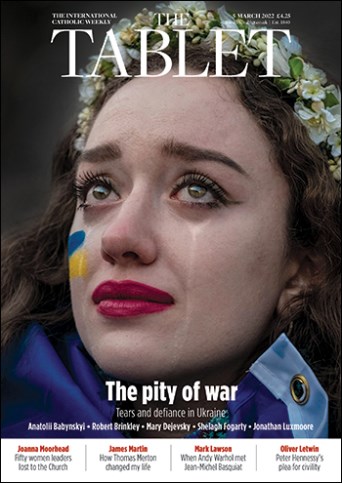
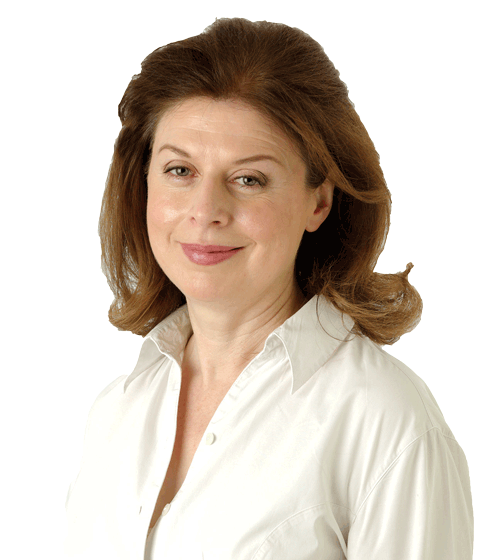
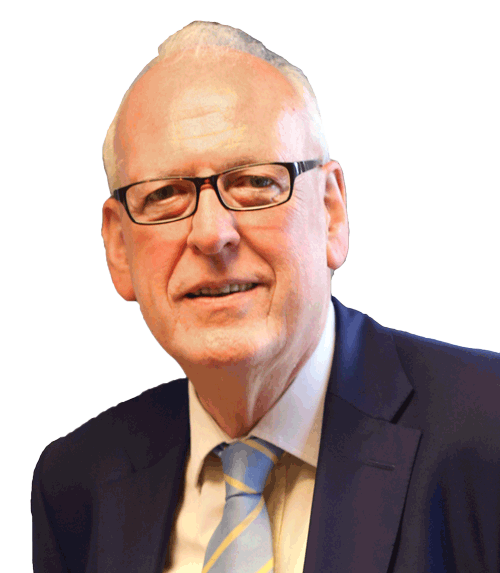
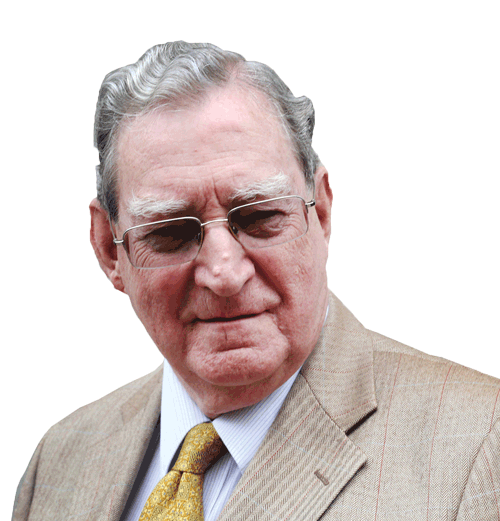
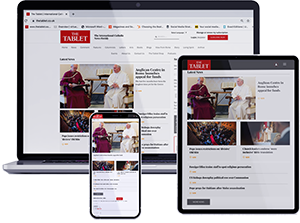

What do you think?
You can post as a subscriber user ...
User Comments (0)